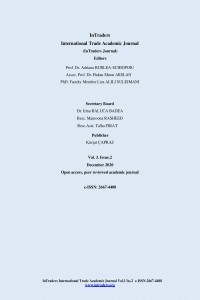Impact of Smart Classroom Modification on Student Performance in Ekiti State Secondary Schools
Impact of Smart Classroom Modification on Student Performance in Ekiti State Secondary Schools
Until recently, education in Nigeria was delivered using ancient classroom techniques that required students to sit through lengthy teacher monologues. However, the advancements in science and technology to make learning more interactive, intelligent, and practical led to a paradigm shift in the educational system. The study strategy was a descriptive survey to gather primary data by creating pertinent questionnaires and employing a quantitative data-collection technique. As a result, the researcher discovered a reliability coefficient of 0.75. The population of this study consisted of students in public schools with cutting-edge learning environments. In addition, 277 male and female students were chosen for this study using random sampling methods. According to the findings, there is a strong connection between effective classroom instruction and students' academic performance. Therefore, smart classrooms should be promoted and implemented to close the knowledge gap between learners in rural and urban areas.
___
- Adewale, B., Jegede, F., Okubote, F., & Olagbadegun, M. (2021). Impact of Classroom Environments’ On the Academic Performance of Architecture Students In Covenant University. In IOP Conference Series: Earth and Environmental Science (Vol. 665, No. 1, p. 012017). IOP Publishing.
- Akhigbe, O. J., & Ogunlade, B. O. (2022). Online Instruction: Panacea to Insecurity in Nigerian Tertiary Institutions. Nigerian Online Journal of Educational Sciences and Technology, 4(1), 46-56.
- Fakuade Olubusayo V. (2021). Effects of Social Media Instructional Platforms on Pupils’ Social Interaction, Attitude to Extended Learning and Achievement in Basic Science in Ekiti State, Nigeria. PhD thesis, University of Ibadan
- Gazzola, A. L., & Didriksson, A. (2018). Trends in higher education in Latin America and the Caribbean.
- Huang, Y., Zhong, M., Huang, Y., Zhu, M., Pei, Z., Wang, Z., & Zhi, C. (2015). A self-healable and highly stretchable supercapacitor based on a dual crosslinked polyelectrolyte. Nature Communications, 6(1), 1–8.
- Laru, J., & Järvelä, S. (2015). Integrated use of multiple social software tools and face-to-face activities to support self-regulated learning: a case study in a higher education context. In Seamless learning in the age of mobile connectivity (pp. 471-484). Springer, Singapore.
- Li, Y., & Guo, Y. (2021). Research on the Strategy of Smart Classroom Construction Based on Teachers’ Data Literacy. In SHS Web of Conferences (Vol. 123, p. 01017). EDP Sciences.
- Ogunlade, B. O. (2011). Availability and utilization of instructional technology as correlates of students' academic performance in Ekiti State Technical Colleges. Unpublished Master’s Thesis, Ekiti State. University, Ado-Ekiti.
- Ogunlade, B. O., Bahago, B. S., & Ogunmodede, A. S. (2021). Strengthen First-Computer-Based Computer-Based Student Programming Skills. European Journal of Education and Pedagogy, 2(6), 68-74.
- Ogunlade, B.O., Olowoyeye, G.B. & Ogunlade, J. (2018). Instructional Media Treatment and Learning Styles: An Antidote to Better Academic Performance in Technical Colleges in Nigeria. Journal of Educational Media and Technology (JEMT) Volume 22 (1) 41–50.
- Prakosa, A., Arevalo, H. J., Deng, D., Boyle, P. M., Nikolov, P. P., Ashikaga, H., & Trayanova, N. A. (2018). Personalized virtual heart technology for guiding the ablation of infarct-related ventricular tachycardia. Nature biomedical engineering, 2(10), 732–740.
- Thivanka Perera, R. A., Yuan, C., & Stegagno, P. (2021, June). A phd filter-based localization system for robotic swarms. In International Symposium Distributed Autonomous Robotic Systems (pp. 176-189). Springer, Cham.
- Yang, J., Pan, H., Zhou, W., & Huang, R. (2018). Evaluation of smart classroom from the perspective of infusing technology into pedagogy. Smart Learning Environments, 5(1), 1-11
- Yayın Aralığı: Yılda 2 Sayı
- Başlangıç: 2018
- Yayıncı: Kürşat ÇAPRAZ
Sayıdaki Diğer Makaleler
Impact of Smart Classroom Modification on Student Performance in Ekiti State Secondary Schools
Ogunlade BAMİDELE OLUSOLA, Olubusayo Victor FAKUADE
Assessing The Challenges And Prospects of MSMEs Development: In The Case Of Ethiopia
Hanan Tahir AHMED, Nur ÖZER CANARSLAN
Emine Arzu İMREN KARAOSMANOĞLU, Alig BAGHİROV, Fuad SELAMZADE, Rafał PITERA, Yeter GASİMOVA
Empirical Analysis Of The Efficiency Of The Banking Sector In Western Balkan Countries
